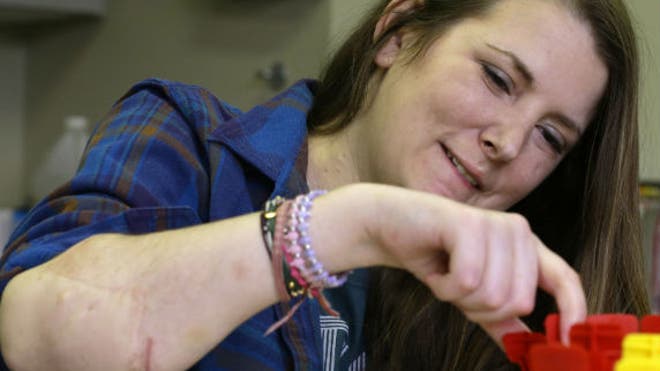
Sure your liver or kidney could save someone’s life. But would you donate your hands, or your face? Signing up to become an organ donor may get more complicated than just checking a box on your driver’s license.
The government is preparing to regulate the new field of hand and face transplants like it does standard organ transplants, giving more Americans who are disabled or disfigured by injury, illness or combat a chance at this radical kind of reconstruction.
Among the first challenges is deciding how people should consent to donate these very visible body parts that could improve someone’s quality of life — without deterring them from traditional donation of hearts, lungs and other internal organs needed to save lives.
”Joe Blow is not going to know that now an organ is defined as also including a hand or a face,” said Dr. Suzanne McDiarmid, who chairs the committee of the United Network for Organ Sharing, or UNOS, that will develop the new policies over the next few months.
Making that clear to potential donors and their families is critical — ”otherwise we could undermine public trust,” said McDiarmid, a transplant specialist at the University of California, Los Angeles.
”The consent process for the life-saving organs should not, must not, be derailed by a consent process for a different kind of organ, that the public might think of as being very different from donating a kidney or a heart or a liver,” she added.
These so-called ”reconstructive transplants” are experimental, and rare. The best estimates are that 27 hand transplants have been performed in the U.S. since 1999, and about seven partial or full face transplants since 2008, said Dr. Vijay Gorantla, of the University of Pittsburgh reconstructive transplant program.
But they’re gradually increasing as more U.S. hospitals offer the complex surgeries, the Defense Department funds research into the approach for wounded veterans — and as transplant recipients go public to say how the surgeries have improved their lives.
”These hands are blessed hands to me,” said Lindsay Aronson Ess, 30, of Richmond, Va., who received a double hand transplant in 2011. She had lost her hands and feet to a life-threatening infection in 2007.
Until now, deciding who qualifies for a hand or face transplant, and how to find a match and approach a potential donor’s family all have been done on an informal, case-by-case basis.
There has been no way to tell which hospitals’ techniques work best and how patients ultimately fare.
There have been reports of two deaths related to face transplants in other countries, and some transplanted hands have had to be amputated.
Source: Teleram news

